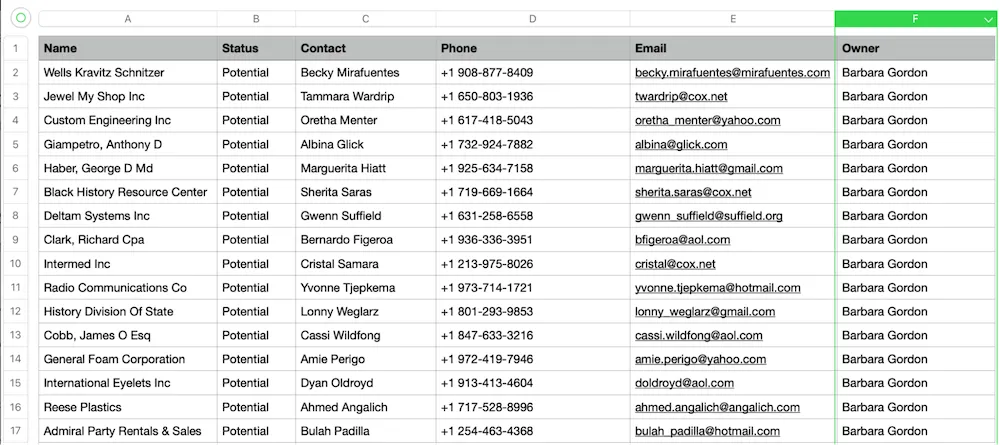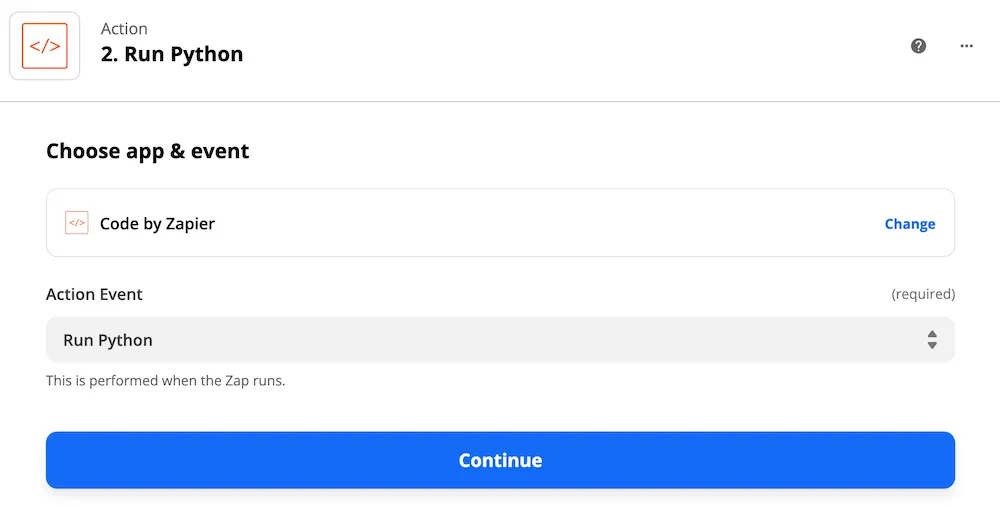
Your marketing team works hard to generate leads for your company.
As a salesperson, it's your job to capitalize on these leads and produce as many paying customers as possible. Thankfully, this burden doesn't rest on your shoulders alone.
In all likelihood, you're one of several sales reps who've been tasked with implementing your department's sales process. This is good news—as long as you have a lead assignment plan in place, of course. If you don't, you and your colleagues will waste time fighting over leads.
In this article, I'll explain what lead assignment is and why it's beneficial. Then I'll share a few best practices you can use to make sure leads are always assigned to the right rep.
What Is Lead Assignment?
Lead assignment, sometimes referred to as lead routing, is the act of distributing leads amongst the sales reps in your organization. It's an important part of lead management.
Here's how the process normally works:
- Your marketing team implements various marketing strategies to drive leads
- Leads enter your CRM of choice and are automatically assigned to specific reps
- Said reps access incoming lead records, then use the information there to connect with, nurture, and eventually sell to the individual leads assigned to them
A strong lead routing process will improve your sales team's productivity, increase the trust your reps have in your organization, and ultimately, result in more sales.
Benefits of Having a Clear, Transparent Lead Routing Process
Effective lead distribution seems simple…
Leads come in, your CRM routes them to certain reps based on the specific lead assignment rules you've created, then each rep works to turn their leads into long-term customers.
Simple? Yes. But the truth is, your lead routing process can make or break your sales department. Get it right, and your sales team will succeed. Get it wrong, and your reps will lose productivity, become distrustful of their superiors, and drive less revenue.
With that in mind, let's explore the benefits of a proper lead assignment in more detail:
Productivity
A rock-solid lead routing workflow will help your sales reps get more done faster.
Think about it: when your reps don't have to fight each other for leads, they'll have more time (and energy!) to spend nurturing prospects. This will almost always result in more deals.
Want to optimize your sales strategies? Uncover the hidden potential of sales productivity tools in our detailed guide.
Trust
What about trust? Transparent case assignment rules will help you build it.
How so? When your reps know how the sausage is made, so to speak, they won't ask themselves why so-and-so was assigned X lead and not them. They'll just know.
When your reps trust your organization, they'll enjoy their work more. When they enjoy their work, they'll put in more effort. And when they put in more effort, they'll make more sales. They'll probably stick around for longer, too, which will improve your team's turnover rate.
Revenue
Lastly, a proper lead assignment process will generate more revenue for your company.
As mentioned earlier, your reps will focus on closing deals, not wrestling leads away from their colleagues. This will allow them to pour more effort into their sales processes, helping them connect with and sell to more customers. More customers generally means more revenue.
I should also mention response time. When leads are automatically assigned to reps, they'll reach out to them faster. Since 78 percent of customers buy from the company that responds to their inquiry first, your team's response time has a huge impact on the revenue it brings in.
Lead Assignment Rules: 5 Ways Top Sales Teams Assign New Leads to Their Team
A strong lead assignment process is essential to the success of your sales department. The question is, how do you distribute leads to reps in a way that's logical and fair?
It's pretty easy: just implement a few lead assignment rules, a.k.a. a set of criteria that determines where and when incoming leads are routed in real-time.
Every CRM software handles this process differently. In Close, for example, you can assign leads manually. You can also assign them automatically based on information such as the location and/or priority of the lead, as well as the qualifications of your reps.
Let's look at the most popular lead assignment rules available to your team:
1. Manual Assignment
The manual assignment rule is exactly what it sounds like: sales reps manually assign leads to themselves in their CRMs. This approach is best when sales reps do their own prospecting.
In Close, sales reps can manually assign themselves leads by simply adding their name to the corresponding custom field inside the Close CRM platform. Or, sales managers can manually assign new leads to their team.
 |
One of the best things about this lead assignment rule is how easy it is to set up.
The downside? It won't work for every team—especially large teams that employ multiple kinds of reps, i.e. sales development reps (SDRs), inside sales reps, account executives, etc.
2. Bulk Assignment
The bulk assignment rule is pretty self-explanatory, too. Leads are uploaded to a CRM, then assigned in bulk to specific users, which allows for peak productivity levels.
In Close, sales managers can bulk assign leads by first creating a "lead owner" column in the document they plan to upload. That way, when said file is integrated into their Close account, leads will automatically be routed to the proper sales rep.
 |
Why should you use this lead assignment role? Because it will save you a ton of time!
Unfortunately, it only works for sales teams that either store leads outside their CRMs (why would you do that?) or purchase leads lists from third-party companies (also not recommended).
3. Round Robin Lead Assignment
The round robin assignment rule will automatically assign leads to specified sales reps in your organization in a circular manner, hence the name "round robin."
In Close, sales managers can implement a round-robin lead assignment process by connecting their Close, Python, and Zapier accounts. Once they do, inbound leads will get sent to their sales reps in order. When the last rep receives a lead, the cycle will start over.
 |
A round-robin lead assignment approach will allow you to automate the lead routing process. Just know that it's more complicated to set up than other lead assignment use cases.
Check out this template to use a round-robin lead assignment approach for your team.
4. Rule-based Assignment
The rule-based assignment process will help you to assign inbound leads to reps based on specific criteria, such as where the lead lives and/or the product/service they're interested in.
In Close, use Smart Views to identify leads that fall within your specified criteria. Then assign them to the most qualified rep on your team.
 |
Rule-based assignments are perfect for global companies that serve customers in many different locations around the world, as it allows them to route leads based on geographical location or time zone, the specialties of their sales reps, and the priority level of their leads.
5. Random Lead Assignment
True to its name, the random lead assignment rule assigns leads to sales rep at random. The best part is, this process happens automatically, so you don't have to worry about it!
In Close, you can also set up Sequences and have a random user assigned to each new lead in that sequence. You can also do this in groups, which means you can separate groups of reps and assign leads randomly within that group.
 |
To randomly assign all leads continuously, sales managers can integrate their Close accounts with Zapier. When this happens, inbound leads will automatically get sent to one of your sales reps, but there won't be any rhyme or reason to the assignments.
 |
Random lead assignment is easier to set up than round robin lead assignment (mentioned above) but will still help you evenly distribute leads across your sales team. When that happens, fewer leads will fall through the cracks, which will help you drive more revenue.
Check out this template to quickly build a random lead assignment approach for your team.
Best Practices for Lead Assignment
There are a bunch of ways to assign leads. No matter which approach you choose, make sure you keep these five best practices in mind. Doing so will help you find more success.
Keep It Simple
First, do your best to simplify your lead assignment rule entries.
Ask yourself, "Do we really need to have 17 criteria to route leads?" Unless you're a mega, enterprise-level organization, the answer is probably no. So why do it?
Trust me, most companies don't need to route the leads that come from LinkedIn and the leads that come from Facebook to different sales reps. There's no point in complicating processes that don't need to be complicated. Sales is already hard enough.
Be Transparent about How Leads Are Assigned
Trust is important in sales. As we discussed earlier, reps that trust their organizations work harder, which almost always translates to more sales and revenue.
Trust is especially important when it comes to lead routing. Your reps need to believe that they get a fair amount of leads. The easiest way to ensure this is to be perfectly transparent about your lead routing processes. That way each rep knows exactly how leads are split up.
If you aren't transparent, your sales reps will question your lead assignment approach, which is less than ideal when most companies pay reps on commission. Basically, your reps might feel like you're "stealing" money from them if they don't understand how leads are divided.
Handle Lead Scoring and Qualification Before Assigning Leads
Next, take care of your lead scoring and qualification procedures before you assign leads.
This will ensure you only send quality prospects to your sales reps, saving them valuable time. One of the worst things you can do in sales is spend an afternoon nurturing a lead that will never buy from you. It's completely unproductive and, honestly, kind of demoralizing.
Fortunately, this isn't that hard to do. Simply use an inbound form to learn more about your leads. Then give each lead a score based on the information you receive. (Note: You can use Close to help automatically score your leads, which will save you boatloads of time.)
Once your leads have been vetted, send them to your reps. Trust me, this simple process will boost team productivity to new heights and help you close way more deals.
Develop a Process to Reassign Leads When Necessary
Guess what—leads can be reassigned to new sales reps if and when necessary.
Maybe a lead is first routed to Dwight. Uh oh, Dwight is on vacation and won't be able to follow up with the lead in a timely manner. No problem, just send that bad boy to Jim instead.
You can do this manually, of course. But I suggest building reassignment rules into your CRM. That way, the tech at your disposal will handle this tedious task for you. Doing so will help your entire team reach the apex of their potential, which is exactly what you want.
Analyze and Optimize Your Lead Assignment Protocols
Last but not least, always look for ways to improve your lead routing approach.
What can you do better? Is there a way to eliminate complexity from your process? Maybe you need to go the opposite way, get a little fancy, and use automation to your advantage. (Just don't get too fancy. Like I said earlier, simple is generally best for lead assignment.)
The point is you might not build the perfect lead routing system on the first try. Even if you do, your sales team might grow in the future. Or adopt a new sales strategy. Either way, you'll want to develop a new process to assign leads. Just to make sure everything works right.
Remember, lead routing isn't a one-time checkbox. You can't set it and forget it. You need to continually analyze your approach and look for ways to optimize it. That's how you win.
Close More Deals with the Right Lead Assignment Process
Lead assignment is critical to the ultimate success of your sales department.
Once you implement a few active assignment rules, your reps will become more productive, trust your organization more, and, most importantly, drive more revenue. Win!
You just need to learn how to create new rules in your CRM of choice. That way the robots can handle the lead distribution process for you, while you focus on other tasks. Win, Win!
If you're a Close user, check out this tutorial. In it, Matt Bonde, one of our esteemed product managers, will show you how to assign leads to an automated sequence. Hello, productivity!
If you're not a Close user, what's stopping you? Sign up for a free 14-day trial today to see everything our platform offers, including its lead assignment capabilities.










